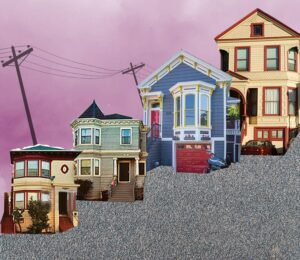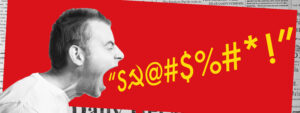We have all heard the statistic that one in four women have been sexually assaulted.
It was thrown around in my high school, something that I never forgot, but normalized.
It is easy to just accept it.
But what happens when that ‘one’ is your mother, your sister, your friend? What happens when that ‘one’ is you?
What happens when that ‘one’ is not one at all, but a ‘two,’ or even a ‘three?’ Or not, maybe a ‘five’ or a ‘six.‘ Whatever the number is, it is too high. It is too much.
The popular hashtag #WhyIDidn’tReport has been circulating on social media platforms in a moment that continues the #MeToo practice of bring light to sexual assault following Dr. Christine Blasey Ford’s coming forward and accusing Kavanaugh of sexually assaulting her years ago, following Kavanaugh’s nomination to the Supreme Court.
I acknowledge the problematic history of framing women’s stories as accusations, but I use the word here to mean that he has not been convicted yet.
This movement follows quickly on the heels of the #MeToo movement, which spanned over a year, exposing many high-profile men in most industries, from Hollywood to the radio industry to politics to medicine to the military to the church.
How many hashtags, movements and people does it take for something to change?
Does it take me, and other women from my community, coming forward and sharing our stories?
What does it take in a society this complicit, more concerned with defending Kavanaugh than understanding someone whose body, and life had been violated by his alleged actions years before, for people to achieve body autonomy, to be safe, to educate about what is okay to say, feel, think.
In Larry Nassar’s case, people knew. He allegedly molested over 250 female and one male athlete under the guise of his physician practice. The entire board of the U.S.A. Gymnastics board tendered their resignations following his conviction.
And yet, no one had said anything.
In Harvey Weinstein‘s case, people knew. When President Trump’s tape was leaked of him saying the infamous ‘grabbing’ statement, people knew.
And this time, when people did speak out against Trump, he suffered almost no damage and because of how outrageous Trump’s actions are and have been portrayed in media, this statement and his belligerent reaction were normalized into the violence of the American mainstream.
The very tough questions are always ‘why did this happen?’ and ‘why didn’t anyone say anything?’
The difficulty with movements like #MeToo, and what I fear with this #WhyIDidn’tReport, is that the main voices heard will once again be mostly white women. The #MeToo movement was started by Tarana Burke, a Black woman, continued by people and women of color and then white women swarmed the stage and co-opted the movement.
This time, this should be a moment to recognize the people who historically and systematically have been targeted, who could not report (for fear of retaliation or dying), and who felt shut out of the #MeToo movement: women of color, people of color, Indigenous and Native women, trans and gender non-conforming people, poor people, disabled people and those who do not conform to the Western heteropatriarchy.
While I can hope, I have to remember that this movement was started by a white, upper-middle class woman at an important point in time, not just because of Kavanaugh’s nomination but because it is easy for movements to lose momentum from the constant barrage of tragic, horrendous and exhausting events and stories. The hashtag that followed built off of that original statement of bravery. What Christine Blasey Ford did, to share her story in front of those who will certainly rip her apart and try to discredit her all while they make her relive the moment, was brave.
However, the specificity and systematic sexual violence happening to other groups of people cannot be boiled down to just that ‘we (assuming cis-women majority) all experience the damaging and violating effect of toxic masculinity on our bodily autonomy.’
Compare Ford’s treatment to Anita Hill’s, and it looks a little different. Give one or two sentences explaining how the treatment looks different…especially important because a lot of people in our generation aren’t as aware of Anita Hill
The prevalence of sexual assault and violence is shockingly (and unfortunately, simultaneously not shockingly) common, but the differences between those groups is just as shocking.
I’m not saying people shouldn’t share their stories. The first step I am arguing for is critical recognition of the powers and systems at play when one person gets more news coverage than another, when one is heard and another not. Then come organizing and supporting in other ways than listening—acting and follow through is just as important.
Each personal story ties into the larger pictures, and yet, we (all of us) cannot forget that these stories are not only numbers and statistics, they are lives. They are moments that change a person’s life. They are the pain, the bravery, the pushing through fear, the healing that it takes to come forward and share.


